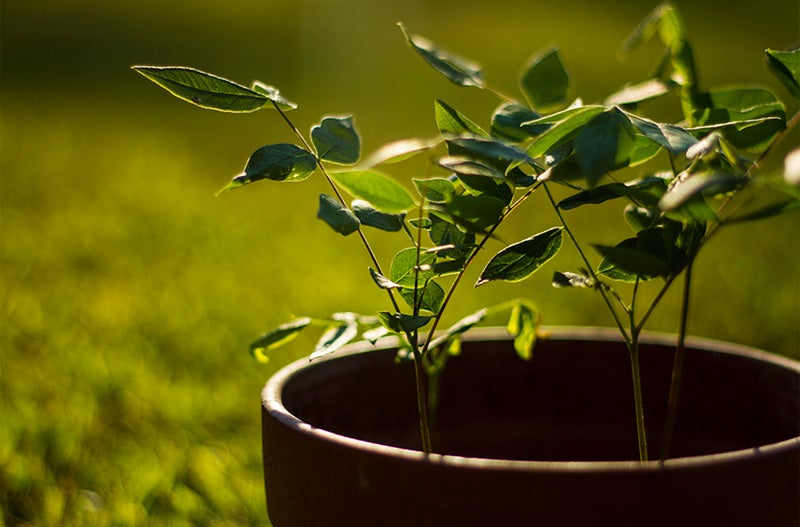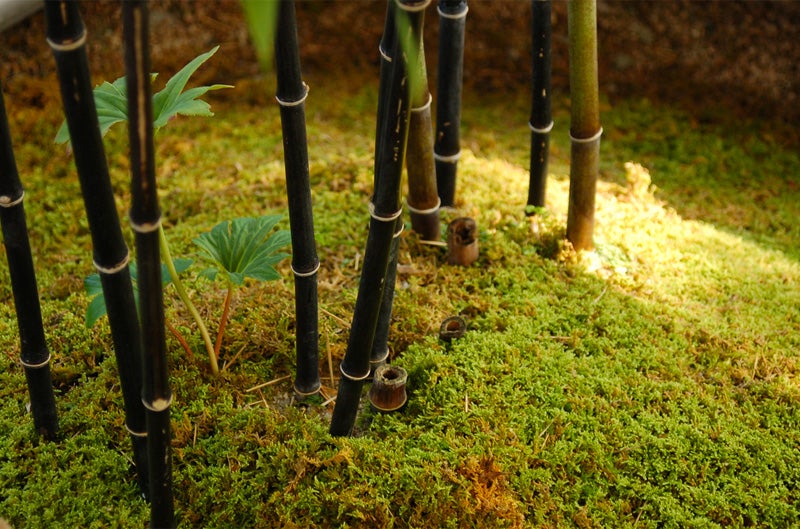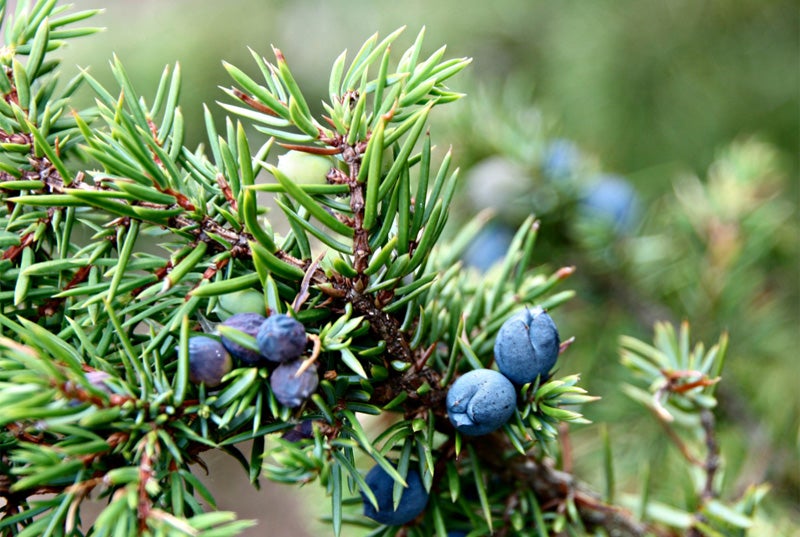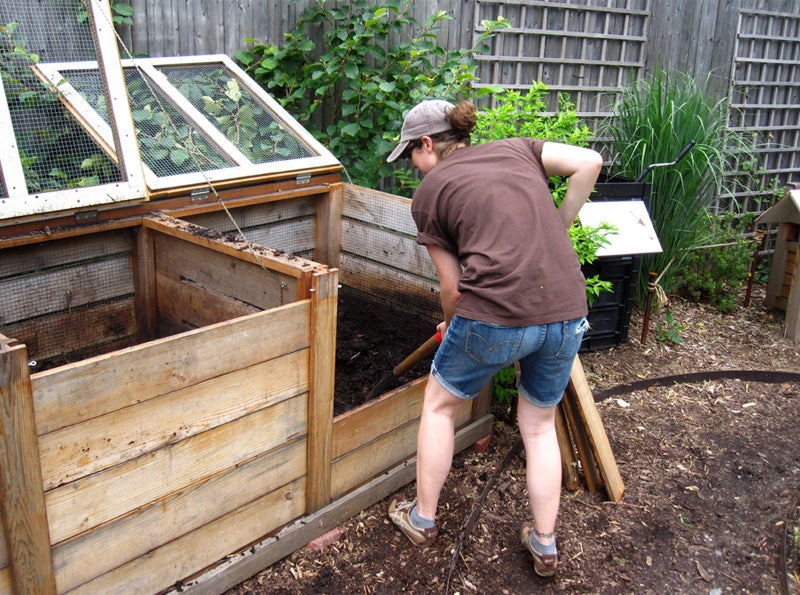Help your little baby trees grow big and strong
ListenMike McGrath explains how to get rid of unwanted pests on your rose bushes, the best way to beat back black bamboo, tips for caring for juniper, why you should test your soil before planting, how to achieve nutrient balance in your homemade compost and how to get your little seedlings to grow big and strong. Plus: Mike speaks with Laura Cassidy, executive assistant to the commissioner of prisons in Philadelphia or otherwise known as the compost queen. She is heading up a composting program in the Philadelphia prison system that turns all their food waste into garden gold.
Question of the Week:
“I enjoy listening to your show and have learned a lot! But I have a question I haven’t heard you address. We are getting seedlings from the Game Commission this spring to plant on our property for wildlife. We’ll be getting Norway Spruce, Silky Dogwood, Mixed fruiting shrubs, and some flowering crabapples. They will be very small seedlings when they come, and I’d like to maximize their chances of survival. Can we plant them in large pots or a temporary garden area to grow for a year or two or would it be better to just plant them in their permanent home?”
— Anya in Julian, PA (20 minutes north of State College)
Help your little baby trees grow big and strong »
Highlights from show for May 24, 2014:
Getting rid of green worms
Darlene, from Southwest center city in Philadelphia has several questions about her lovely pink rosebushes she purchased about ten or eleven years ago. Four years ago, these little green sneaky worms started collecting on and around the bush. These critters tend to suck the life out of the leaves and now her roses don’t produce buds as they have no energy left to open! Mike suggests that when Darlene prunes her roses back in the spring she can then go to a local hardware store and get a couple of suet feeders and a few metal cages. You will want to hang these cages near your rosebush, so meat-eating birds will flock towards your rosebushes. These birds will eat the green worms and you can also shoot the worms off with a water hose.
Beating back bamboo
Dave from Virginia has a major problem with black bamboo invading his property. His neighbor planted some a few years ago and it has crept into his backyard. Dave wants to know how to get rid of this pesky plant as black bamboo is known to grow almost two feet a day, or more! Mike outlines the two different types of bamboo; clumping and running bamboo. The most basic is the running bamboo, and the type that his neighbor has is arrow bamboo, which can travel underground almost as fast as one can shoot an arrow! (Hence the name) Clumping bamboo is known to be much more attractive and tends to spread slowly, as the growth pattern of the rhizomes is to simply expand the root mass gradually, similar to ornamental grasses. Mike advises Dave to install a rhizome barrier which will exhaust the root growth over the next three years, and then to reseed the lawn every fall. Mike tells Dave and his listeners to visit: www.americanbamboo.org to check out contractors, landscapers, and everything you need to know about bamboo growth in the United States.
Interview with Laura Cassidy
Mike speaks with Laura Cassidy, executive assistant to the commissioner of prisons for Philadelphia and is pioneering a composting program that takes all of the food waste left over from the inmates and composts it down using an incredibly efficient system that only uses forced air. Laura tells Mike that this new program is not only environmentally friendly, but will save the prison system a significant amount of money in terms of waste disposal.
Caring for juniper
Kathy from Long Port, New Jersey has planted some low-growing juniper bushes on a small strip of land on her property last spring. Kathy wants to know how to maintain her junipers and keep them healthy. Mike suggests to contact your local county extension agent and ask what the recommended plants are to surround the juniper bushes. Mike offers using beachfront grasses or dune grasses. Mike says to find a good source of yard-waste compost and shovel it all around the junipers and to get rid of the wood mulch that is currently there, as the wood prevents proper growth. This should happen every spring. Mike suggests adding a few grasses in there, which would really compliment the bushes.
Soil safety
Rich from Washington Crossing, Pennsylvania has recently purchased a house and it has previously and mysteriously been vacant for about two years. Rich notices in the expansive backyard there are two decent garden beds with old soil. Rich is wondering if the soil is adequate enough to use for gardening, or if it should it be replaced. Rich and his girlfriend have been recently growing onions, broccoli, peas, and tomatoes. Most of these are seedlings, and Mike suggests that first-time gardeners should always buy starter plants. Mike tells Rich to read the secession planting articles in YBYG’s A-Z archives to find tips and tricks of the trade when it comes to planting seeds and garden beds, even in old soil.
Balancing nutrients in homemade compost
Bob from Bucks county, Pennsylvania has a garden that is about 200 square feet and he loves to add coffee grounds, egg shells and leaves, to his compost pile. Bob tells Mike that he has tomatoes and eggplant with leaves that look really wonderful, but the fruit they produce is very sparse and not flavorful. Mike informs Bob that this is known as “sheet composting” where you pile on different layers of waste material on top of gardens and turn it over in the spring. Mike tells Bob that with this layering, you are actually depleting the nutrients from the soil, instead of enriching it. This is because every time you break up the soil, you release nutrients into the air, which in turn, makes it difficult to garden. This makes it a perfect home for a plethora of finicky weeds to take over his garden. Mike suggests raking off the first layer of the garden as that layer is preventing the sun from getting through to the seeds. Mike suggests building raised beds and over time, you’ll see better growth, and hopefully more flavorful veggies.
WHYY is your source for fact-based, in-depth journalism and information. As a nonprofit organization, we rely on financial support from readers like you. Please give today.





